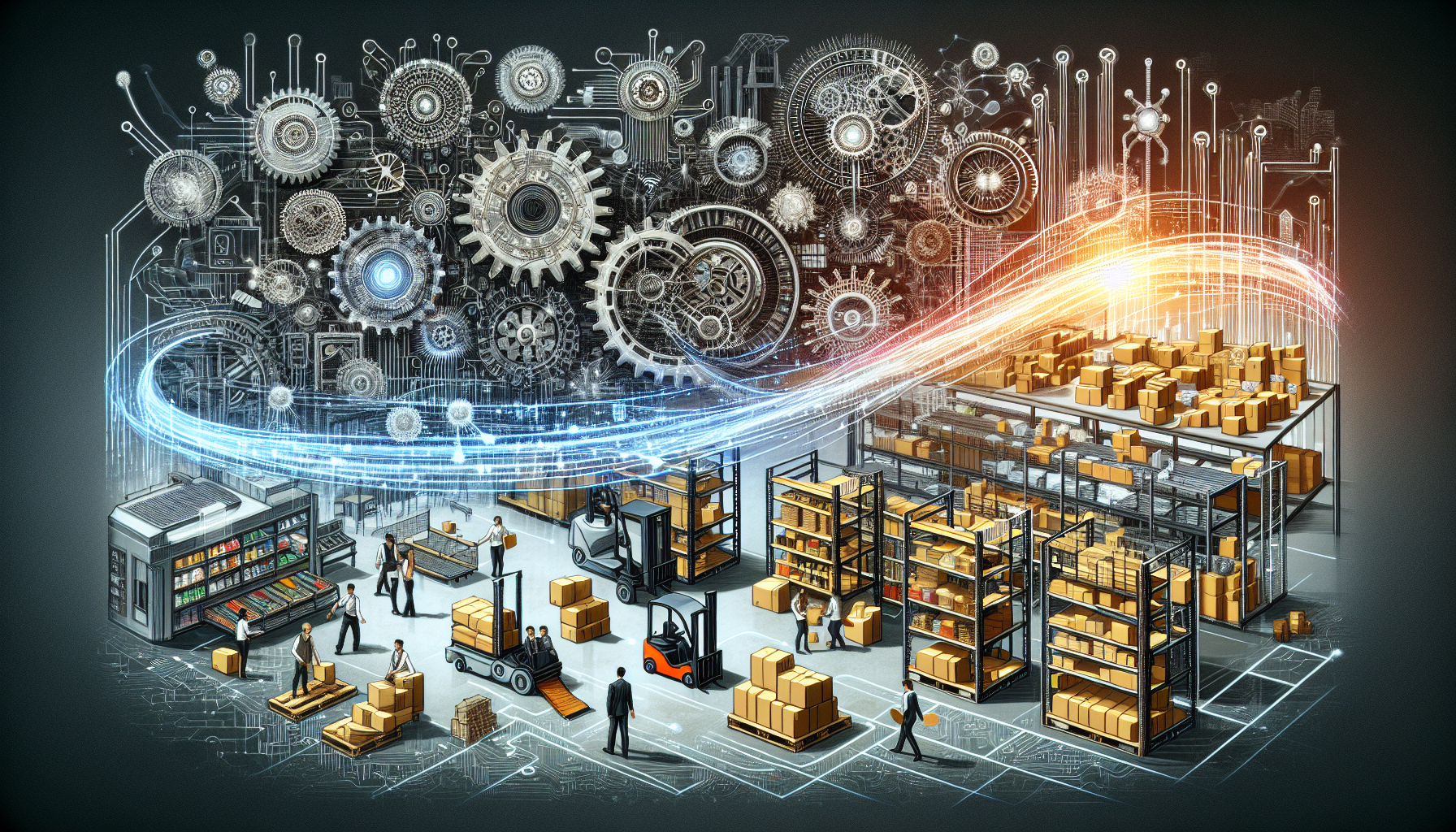The Role of AI in Optimizing Retail Logistics and Inventory Management
1. Understanding Retail Logistics and Inventory Management
Retail logistics involves the process of planning, implementing, and controlling the flow of goods from point of origin to point of consumption, ensuring that products are delivered to consumers in a timely and efficient manner. Inventory management, on the other hand, focuses on overseeing the ordering, storing, and use of products that a company sells, as well as the management of raw materials, components, and finished products.
2. Traditional Challenges in Retail Logistics
Traditionally, retail logistics and inventory management faced several challenges, including stockouts, excess inventory, and inaccurate demand forecasting. These issues often arose from manual processes, lack of visibility, and limited data analytics, leading to increased operational costs and diminished customer satisfaction.
3. The Emergence of AI
Artificial Intelligence (AI) has emerged as a transformative technology in retail logistics and inventory management, providing critical insights and automating various processes. By leveraging machine learning algorithms, predictive analytics, and big data, AI can analyze historical sales patterns and consumer behavior, thereby enhancing operational efficiency significantly.
4. Demand Forecasting
One of the primary applications of AI in retail logistics is demand forecasting. Traditional forecasting methods often relied on basic statistical techniques, which may not account for varying factors like seasonality, market trends, or consumer preferences. AI models utilize machine learning to process vast datasets—ranging from sales data, social media trends, weather conditions, and even economic indicators. These models enhance accuracy in predicting customer demand, reducing the likelihood of stockouts or overstocking.
5. Inventory Optimization
AI algorithms optimize inventory levels by analyzing real-time data and predicting trends. By implementing AI, retailers can automate reorder points and quantities, ensuring that stock levels remain optimal. For example, AI can analyze sales velocity for various products, adjust reorder quantities according to expected demand, and suggest inventory replenishments in real-time. This reduces storage costs and contributes to a healthier cash flow.
6. Supply Chain Management
AI plays a pivotal role in streamlining supply chain operations. Machine learning models can identify bottlenecks in supply chain processes, suggest alternative suppliers, or optimize transportation routes. This insight helps businesses make more informed decisions on suppliers and logistics partners while reducing delivery times.
7. Real-time Analytics
AI-driven real-time analytics provide retailers with immediate insights into inventory levels, order status, and shipment tracking. With dashboard technologies, executives can view their inventory performance across multiple retail locations, helping identify trends and discrepancies. Real-time reporting enables businesses to react quickly to changes in demand, ensuring that they maintain optimal stock levels.
8. Personalization in Inventory Management
AI can also enhance the retail experience through personalization. By analyzing customer purchase history and preferences, AI can help retailers tailor their inventory to better meet the individual needs of their customers. For example, retailers can stock seasonal products that align with local customer preferences, improving the relevance of their inventory and increasing sales potential.
9. Automated Warehousing
Automation in warehouses, powered by AI, can improve logistics operations dramatically. Technologies like robotics and autonomous vehicles streamline picking, packing, and sorting processes. These systems reduce human error and labor costs while improving speed and accuracy in warehouse operations. For instance, AI-driven robots can efficiently locate and retrieve items, optimizing space and throughput in the fulfillment process.
10. Predictive Maintenance
AI can predict when equipment in retail logistics systems needs maintenance, thus preventing potential downtimes. By analyzing sensor data from machinery and vehicles, AI can identify patterns that indicate wear and tear, enabling proactive maintenance schedules. This approach lowers operational risk and maintains a smooth logistics operation.
11. Customer Experience Enhancement
AI enhances customer experience by ensuring product availability and timely delivery. By optimizing logistics and inventory management, retailers can improve the customer journey—leading to higher satisfaction levels. Personalized inventory adjustments based on AI analytics result in customers finding exactly what they need when they shop.
12. Cost Reduction
By leveraging AI, retailers can achieve substantial cost reductions. Enhanced demand forecasting minimizes the costs associated with overproduction and excess inventory. Automated logistics processes reduce labor costs, while predictive analytics help in optimizing logistics expenses. These factors collectively contribute to a more efficient supply chain model.
13. Sustainability Efforts
AI also plays a crucial role in promoting sustainability in retail logistics. By optimizing delivery routes and managing inventory levels effectively, retailers can reduce their carbon footprint. For example, AI can suggest eco-friendly delivery options that minimize emissions while maintaining service standards.
14. Future of AI in Retail Logistics
The future of AI in retail logistics promises even more advanced applications. With developments in natural language processing and computer vision, retailers may soon implement AI-driven chatbots for customer service and automated inventory tracking systems that use image recognition. These advancements could further streamline operations and enhance customer engagement.
15. Integration with Internet of Things (IoT)
The integration of AI with IoT technology enables smart inventory management. Sensors placed in warehouses and retail spaces provide real-time data on product availability, helping in precise inventory tracking. This connection allows for automated stock counting and automated reordering, further enhancing efficiency.
16. Challenges and Considerations
While AI offers numerous benefits, it is essential for retailers to consider challenges such as data privacy, integration with existing systems, and the need for skilled personnel to manage AI technologies. Additionally, investing in AI requires careful consideration of return on investment and scalability for future needs.
17. Conclusion: The Local Impact of AI
As AI continues to evolve, its impact on retail logistics and inventory management will grow, revolutionizing how retailers operate. The adoption of AI technologies not only enhances efficiency but also supports improved customer experiences, sustainable practices, and informed decision-making. Embracing AI is now a vital component for retailers looking to thrive in a competitive marketplace.


